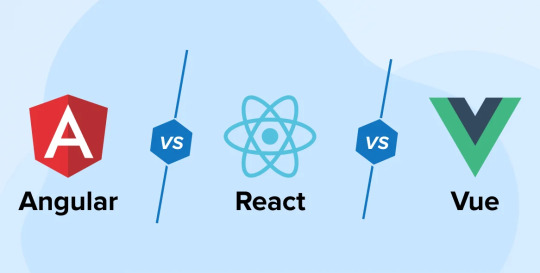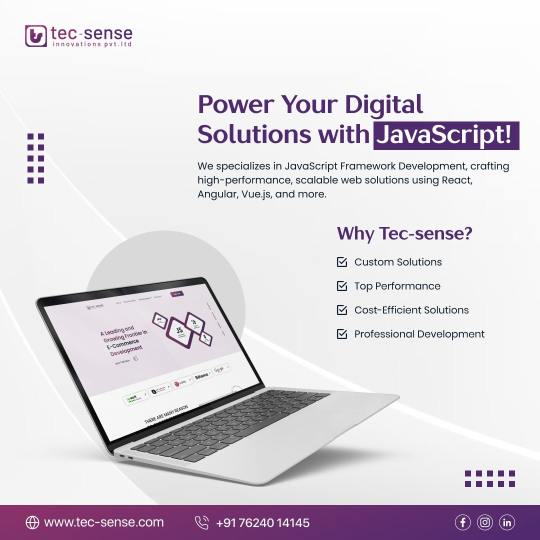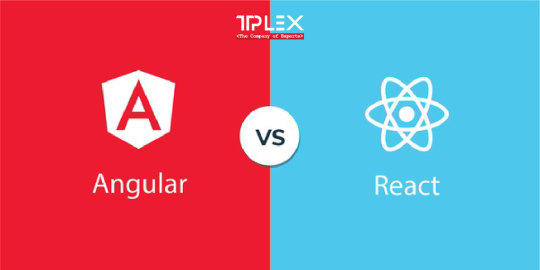#reactjs angular
Explore tagged Tumblr posts
Text
Best feature and functionality you should have in your travelling agency or business software
The yearly income for the travel and tourism sector is roughly 63% derived from online reservations.
You can handle online bookings effectively with a competent hotel reservation system. By automating reservation procedures, the possibility of human mistakes and financial losses in the hotel industry is decreased.
A simplified booking process also enables hoteliers to give customers a more user-friendly booking experience. While selecting a hotel reservation software, take into account the following factors.
The mechanism for booking hotels online :
A user-friendly interface that benefits both visitors and employees is a must for an effective hotel reservation system.
The reservation procedure will be greatly facilitated by a practical calendar front-desk perspective. The program must contain a plugin or JavaScript that can be integrated into the website for your hotel. It should also be able to link visitors to a portal or microsite where they can finalize their bookings online.
Without having to navigate through your website, the booking engine should give your visitors all the details they would need, such as rates, packages, hotel kinds, add-ons, inclusions, and other information.
Learn more: https://www.inspironlabs.com/

#mobile app developer company#reactjs angular#best app development company#web and mobile app development companies#best mobile app developers#angular react js#Full stack developer#eretail software#banking software#quality control#core java developer#ecommerce development company#ecommerce development companies#Business Intelligence#Blockchain app development companies#Chatbot development companies#ios & android application development companies#custom software development company#Big Data Analytics services & Digital Marketing services services#ICO development companies
0 notes
Text
Making a Website: A Beginner’s Guide
Creating a website is one of the most powerful ways to build an online presence. Whether you want to promote your brand, grow your business, or share your personal blog, making a website can make a significant impact. Here’s a beginner’s guide to help you navigate the essential steps and make the process smoother.
1. Define the Purpose of Your Website
Before you start, it’s crucial to clearly define the purpose of your website. Are you building an e-commerce store, a blog, or a portfolio site? Understanding your goals will help guide your design choices, content strategy, and the overall structure of your website. Knowing the purpose is essential to making a website that resonates with your audience.
2. Choose the Right Platform
Selecting the right website platform is key to achieving a user-friendly and professional website. Platforms like WordPress, Wix, and Squarespace offer various templates and customization options, but if you want full control, consider creating a custom website. For more insights on choosing a platform, check out Making a Website.
3. Prioritize User Experience and Design
A well-designed website should be easy to navigate and visually appealing. Make sure to create a layout that guides visitors smoothly through your content. Focus on mobile responsiveness, intuitive menus, and fast loading speeds to keep users engaged. Making a website that prioritizes the user experience can lead to higher visitor satisfaction.
4. Optimize for SEO
To increase visibility, ensure your website is SEO-friendly from the start. Use relevant keywords, optimize image sizes, and write clear meta descriptions. By paying attention to these SEO basics, you can help your website rank better on search engines, attracting more visitors. These steps are crucial in making a website that stands out.
Creating a website is a journey that can transform your online presence. Remember, the key to success lies in setting clear goals, selecting the right tools, and prioritizing the user experience. For more tips on building and optimizing your website, don’t forget to explore the resources available at Making a Website.
2 notes
·
View notes
Text
Front-End Development: Building the Interface of the Future
Front-end development is at the heart of creating user-friendly and visually appealing websites. It involves translating designs into code and ensuring that web applications are responsive and interactive. In this article, we explore the key aspects of front-end development, essential skills, and emerging trends in the field.
What is Front-End Development?
Front-end development focuses on the user interface (UI) and user experience (UX) aspects of web development. It involves creating the part of the website that users see and interact with, using a combination of HTML, CSS, and JavaScript.
Core Technologies
HTML (HyperText Markup Language): HTML is the foundation of web pages, defining the structure and content, such as headings, paragraphs, and images.
CSS (Cascading Style Sheets): CSS is used to style and layout web pages, controlling aspects like colors, fonts, and spacing to create an attractive and consistent look.
JavaScript: JavaScript adds interactivity and dynamic content to web pages, enabling features like form validation, animations, and user input handling.
Popular Frameworks and Libraries
React: A JavaScript library for building fast and dynamic user interfaces, particularly single-page applications.
Angular: A comprehensive framework for building large-scale applications with a structured and modular approach.
Vue.js: A flexible framework that is easy to integrate into projects and focuses on the view layer of applications.
The Role of a Front-End Developer
Turning Designs into Code
Front-end developers take designs created by UI/UX designers and turn them into code. This involves creating HTML for structure, CSS for styling, and JavaScript for functionality, ensuring the design is faithfully implemented and functional across various devices and browsers.
Ensuring Responsiveness
With the growing use of mobile devices, it’s crucial that websites work well on screens of all sizes. Front-end developers ensure that web applications are responsive, meaning they adapt smoothly to different screen resolutions and orientations.
Optimizing Performance
Performance optimization is key in front-end development. Developers reduce file sizes, minimize load times, and implement lazy loading for images and videos to enhance the user experience.
Maintaining Cross-Browser Compatibility
A successful front-end developer ensures that web applications work consistently across different browsers. This involves testing and resolving compatibility issues to provide a uniform experience.
Implementing Accessibility
Making web content accessible to people with disabilities is a critical aspect of front-end development. Developers adhere to accessibility standards and best practices to ensure that everyone can use the website effectively.
Essential Skills for Front-End Developers
Mastery of Core Technologies
Proficiency in HTML, CSS, and JavaScript is fundamental. Front-end developers must be able to write clean, efficient code that is both maintainable and scalable.
Familiarity with Modern Frameworks
Knowledge of modern frameworks like React, Angular, and Vue.js is crucial for building contemporary web applications. These tools facilitate the creation of complex, dynamic interfaces.
Version Control with Git
Version control systems like Git are essential for tracking changes in the codebase and collaborating with other developers. Mastery of Git allows for efficient project management and collaboration.
Understanding of UX/UI Design
An understanding of UX/UI principles helps developers create user-friendly and aesthetically pleasing interfaces. This includes knowledge of user behavior, usability testing, and design basics.
Problem-Solving and Debugging
Front-end development often involves troubleshooting issues related to layout, functionality, and performance. Strong problem-solving skills are essential to identify and resolve these challenges efficiently.
Emerging Trends in Front-End Development
Progressive Web Apps (PWAs)
PWAs combine the best features of web and mobile applications, offering fast loading times, offline capabilities, and push notifications. They provide a native app-like experience within the browser.
WebAssembly
WebAssembly allows developers to run high-performance code in web browsers. It enables complex applications like games and video editors to run efficiently on the web, expanding the possibilities of front-end development.
Server-Side Rendering (SSR)
Server-side rendering improves the loading speed of web pages and enhances SEO. Frameworks like Next.js (for React) facilitate SSR, making it easier to build fast and search-friendly applications.
Single Page Applications (SPAs)
SPAs load a single HTML page and dynamically update the content as users interact with the application. This approach provides a smoother user experience, similar to that of a desktop application.
Component-Based Development
Modern frameworks emphasize component-based architecture, where UI elements are built as reusable components. This modular approach enhances maintainability and scalability.
AI and Machine Learning Integration
Integrating AI and machine learning into front-end development enables the creation of smarter, more personalized applications. Features like chatbots, recommendation engines, and voice recognition can significantly enhance user engagement.
#FrontEndDevelopment#WebDevelopment#UIUXDesign#HTML#CSS#JavaScript#ReactJS#Angular#VueJS#ResponsiveDesign#WebDesign#UserExperience#WebPerformance#WebAccessibility#SinglePageApplication#ProgressiveWebApp#WebDevelopmentTrends#ModernWebDev#FrontendFrameworks#CodeNewbie#LearnToCode#WebDevCommunity#CodingLife#TechTrends#WebComponents#WebAssembly#ServerSideRendering#DigitalDesign#UIComponents#WebOptimization
3 notes
·
View notes
Text
React vs. Angular

React and Angular are both popular JavaScript frameworks for front-end development. React is lightweight and flexible, while Angular is a complete solution with a steeper learning curve. Ultimately, the best framework to pick depends on the project requirements, team expertise, and development goals.
#business#reactjs#reactnative#angular#startup#reactjs development company#hire reactjs developers#reactjs development services#reactjs developers#nodejs#nodejs development#nodejs development company#hire nodejs developer#node js developers#javascript
2 notes
·
View notes
Text

Angular is a TypeScript-based, open-source JavaScrip framework. Google maintains this framework. By using HTML and TypeScript, it builds a single-page application. React is a flexible, efficient, declarative JavaScript library that helps create user interfaces. It is an open-source front-end JavaScript library. It is a user interface library. Vue is an open-source model-view-ViewModel front-end JavaScript framework. It is used for developing single-page applications and user interfaces. The article will show the differences between Angular vs React vs Vue.
#angularjs development company#reactjs development company#reactjs development services#angularjs development services#vue vs react vs angular#vuejs development company#vuejs development services
0 notes
Text
🌟 JavaScript Frameworks Showdown: React vs. Angular vs. Vue.js 🌟
Hey, web devs! 👩💻👨💻 Ready to dive into the world of JavaScript frameworks? Let’s break down the big three: React, Angular, and Vue.js! 🚀

🔍 Quick Overview
React: Created by Facebook, this library is all about building awesome user interfaces with reusable components. It uses a Virtual DOM for super-fast performance! ⚡️
Angular: Developed by Google, Angular is a full-fledged framework perfect for large applications. It features two-way data binding and comes packed with tools! 🛠️
Vue.js: The rising star! 🌟 Vue is flexible and easy to learn, making it great for both newbies and pros. It’s all about reactive data binding!
💪 Strengths & Weaknesses
Feature React Angular Vue.js Architecture Component-Based MVC Component-Based Data Binding Unidirectional Two-Way Reactive Performance Virtual DOM Optimized but complex Super Fast Learning Curve Moderate Steep Easy Community Support Strong Strong Growing
🤔 Which One to Choose?
React: Perfect for high-performance apps with complex UIs!
Angular: Ideal for big projects needing a comprehensive solution!
Vue.js: Great for small to medium projects or when you want something easy to pick up!
💡 Final Thoughts
Each framework has its vibe! Whether you’re building a sleek app or diving into enterprise solutions, there’s a perfect fit for you. 🌈✨
For expert guidance in your development journey, check out Hexadecimal Software and explore innovative solutions at HexaHome!
Happy coding! 🎉💻
0 notes
Text

0 notes
Text
Modernized web application for the company in the Telecommunications and Broadcasting domain with up-to-date front-end, improved interface, and robust data visualization tools. The new system enhances operational efficiency and provides real-time insights, enabling better decision-making.
Industry: Telecom and Broadcasting Tech stack: Angular, React.js
#telecommunications#telecomsolutions#telecomindustry#telecom industry#telecom solutions#broadcasting services#outsourcing#software development#web development#staff augmentation#custom software development#it staff augmentation#custom software solutions#it staffing company#it staff offshoring#custom software#react js#reactjs#react app#angular
0 notes
Text

User experience is key to keeping your audience engaged. Angular’s dynamic features allow developers to create intuitive, user-friendly mobile apps that users love. Elevate your app's UX with Angular! 🔗Learn more: https://greyspacecomputing.com/custom-mobile-application-development-services/ 📧 Visit: https://greyspacecomputing.com/portfolio
#GreySpaceComputing#Mobileappdevelopment#angular#html#javascript#css#programming#java#reactjs#python#nodejs#webdevelopment#php#webdeveloper#coding#react#vuejs#developer#softwaredeveloper#webdesign#programmer#jquery#android#angularjs#webdesigner#laravel#mongodb
0 notes
Text
Eloquent Filtering Package: Streamlining Query Management in Laravel

#laravel#php#html#css#javascript#webdevelopment#programming#webdeveloper#nodejs#python#java#vuejs#webdesign#mysql#angular#reactjs#android#webdesigner#jquery#js#software#rubyonrails#mongodb#coding#nosql#developer#programmer#codeigniter#wordpress#softwaredeveloper
1 note
·
View note
Text

#mobile app developer company#reactjs angular#best app development company#web and mobile app development companies#best mobile app developers#angular react js#Full stack developer#eretail software#banking software#quality control#core java developer#ecommerce development company#ecommerce development companies#Business Intelligence#Blockchain app development companies#Chatbot development companies#ios & android application development companies#custom software development company#Big Data Analytics services & Digital Marketing services services#ICO development companies
0 notes
Text

Ready to transform your online presence? 🚀
Whether you need a robust web app or a scalable platform, our expert team delivers top-notch performance with frameworks like React, Angular, and Vue.js. 💻
At Tec-sense, we craft custom JavaScript solutions that are as unique as your business. 💼
🌐 Visit us: https://tec-sense.com/…/javascript-framework-development/ 📧 Email us: [email protected] 📞 Call us: +91 76240 14145
#businesssolutions#digitaltransformation#webdevelopment#webapplications#javascriptframeworks#reactjs#angular#vuejs#customsolutions#techinnovation#tecSense#tecsenseinnovations
0 notes
Text
#coding#software development#ed tech#software engineering#sqilco#web development#python#angular#reactjs#software#frontend#developers
0 notes
Text
Why Do .NET Developers Love Angular Rather Than React?

In the dynamic world of web development, frameworks play a crucial role in shaping the efficiency and scalability of applications. Among the myriad of choices, Angular and React are two of the most prominent. However, .NET developers often gravitate towards Angular. Here’s why.
TypeScript Compatibility
One of the primary reasons .NET developers prefer Angular is its use of TypeScript, a superset of JavaScript developed by Microsoft. Since .NET developers are accustomed to statically typed languages like C#, the transition to TypeScript feels more natural. TypeScript's strong typing and object-oriented features make it easier for .NET developers to write robust and maintainable code, similar to their experience with C#.
Comprehensive Framework
Angular is a full-fledged framework that offers a comprehensive set of tools and features right out of the box. This includes a powerful templating engine, dependency injection, and a robust router. .NET developers appreciate this all-in-one approach because it aligns with the structure and comprehensive toolsets they are used to in the .NET ecosystem, particularly with frameworks like ASP.NET.
MVC Architecture
Angular’s adherence to the Model-View-Controller (MVC) architecture resonates well with .NET developers. The MVC pattern is a fundamental part of ASP.NET, and Angular's similar structure makes it easier for developers to organize their code in a familiar way. This architectural alignment reduces the learning curve and enhances productivity.
Enterprise-Level Features
Angular is known for its enterprise-level features, making it suitable for large-scale applications. Features like two-way data binding, a powerful CLI (Command Line Interface), and comprehensive testing tools are highly valued by developers working on complex projects. .NET developers, who often work on enterprise applications, find Angular's robustness and scalability a perfect match for their needs.
Strong Community and Ecosystem
Both Angular and .NET have strong communities and extensive ecosystems. This means plenty of resources, tutorials, and third-party tools are available, which facilitates smoother development processes. .NET developers benefit from the shared knowledge and support within these communities, making problem-solving more efficient.
Integrated Development Environment (IDE) Support
Visual Studio, a popular IDE among .NET developers, offers excellent support for Angular development. The integration of Angular with Visual Studio and Visual Studio Code ensures a seamless development experience, allowing developers to leverage the powerful features of these IDEs, such as debugging, code completion, and version control.
The Viewpoint of TPLEX
At TPLEX, we’ve seen firsthand why .NET developers thrive with Angular. Our team, proficient in both .NET and Angular, consistently delivers high-quality applications that leverage the strengths of both technologies. For instance, in projects requiring robust front-end solutions integrated with powerful back-end services, Angular and .NET make a formidable pair.
Conclusion
While React is undoubtedly a powerful and flexible library, .NET developers often prefer Angular due to its TypeScript compatibility, comprehensive framework, MVC architecture, enterprise-level features, and strong community support. The seamless integration with tools like Visual Studio further solidifies Angular as a favored choice.
For .NET developers looking to expand their front-end capabilities, Angular offers a familiar and powerful framework that enhances their ability to build scalable and maintainable applications. At TPLEX, we continue to leverage these synergies to deliver cutting-edge solutions to our clients, ensuring they stay ahead in the competitive digital landscape.
0 notes
Text
Angular vs. React vs. Vue: Which Framework Dominates in 2024?

In 2024, the battle of JavaScript frameworks continues to be dominated by Angular vs. React vs. Vue, each bringing unique strengths to front-end development. Angular, backed by Google, remains a powerhouse with its comprehensive feature set and strong enterprise support. It excels in complex, large-scale applications requiring robust architecture and TypeScript integration.
React, maintained by Facebook, retains its popularity for its flexibility and virtual DOM efficiency, making it ideal for building interactive user interfaces. Its vast ecosystem and component-based structure empower developers to create scalable applications swiftly.
Meanwhile, Vue.js, known for its simplicity and ease of integration, has steadily gained ground with its progressive framework approach. It appeals to developers seeking a lightweight yet powerful solution for building modern UIs and single-page applications.
The decision between Angular, React, and Vue hinges primarily on the specific project demands, the proficiency of the team, and the scalability requirements. While Angular suits enterprise-grade applications, React’s flexibility caters well to diverse project scopes, and Vue’s simplicity attracts startups and small teams aiming for rapid development. In 2024, these three remain the cornerstone choices in the ever-evolving landscape of front-end development.
#Angular vs. React vs. Vue#reactjs#softwaredevelopmentcompany#appdevelopment#custom application development company
0 notes